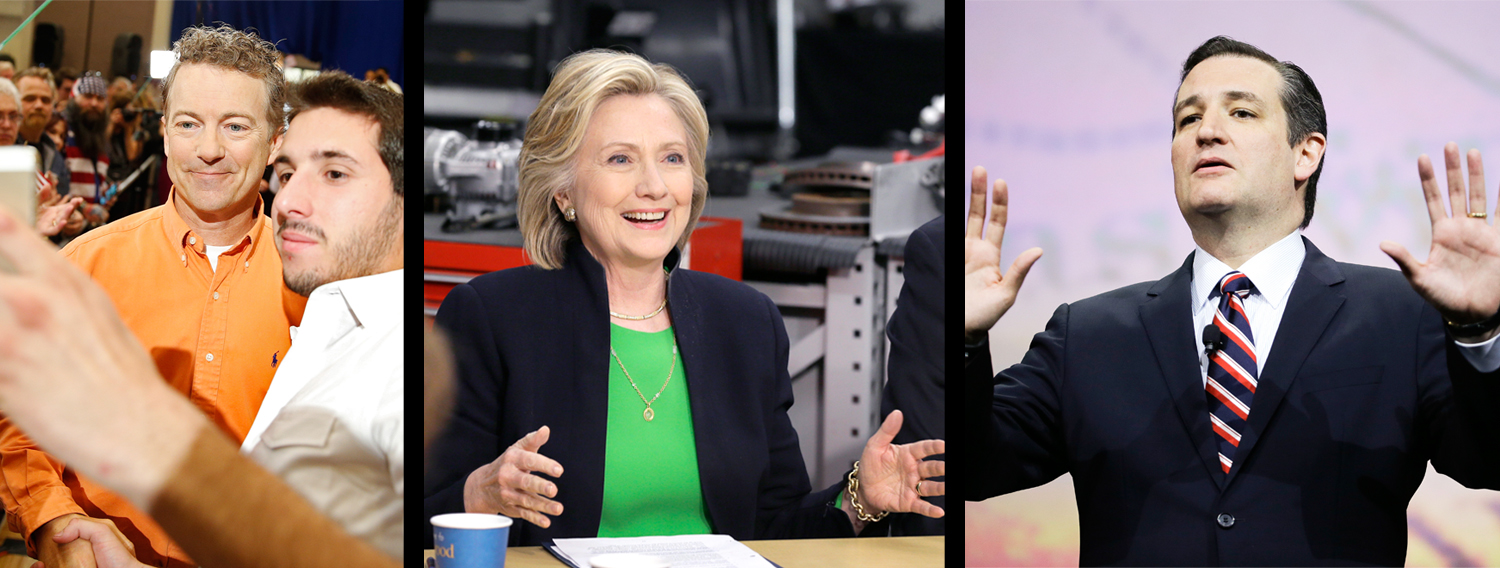
On April 12, the democrats finally joined the republican-packed roundtable—colloquially known as the upcoming 2016 presidential race—as Hillary Clinton announced her campaign’s commencement in a video across social media.
In the video, the former Secretary of State and First Lady comes into the ring as the only democrat really swinging, poising herself as a warrior for the middle class.
“Everyday Americans need a champion, and I want to be that champion,” she said near the video’s end.
Since then, Clinton has hit the trail in Iowa, focusing on smaller events, featuring local officials, community leaders and students.
According to the Associated Press, on April 14, she met with community college students and professors in the rural town of Monticello, where she charted the foci of her initial campaign: “improving the economy, strengthening families, fixing ‘dysfunctional government’ and protecting national security.”
However, the concept of economic inequality is also at the epicenter of Clinton’s campaign.
“I think it’s fair to say that as you look across the country the deck is still stacked in favor of those already at the top,” Clinton said in Monticello. “There’s something wrong with that.”
So far, Clinton is met by an array of republican hopefuls—some officially in the running and others not—amidst the taciturn hush-hushness of her own party.
The most recent recruitment in the race for the GOP nomination is Florida Sen. Marco Rubio, who announced his campaign to donors via telephone on April 13, according to the New York Times.
Rubio has yet to announce his would-be presidential platform, but PBS reports Rubio’s Senate record shows a typical conservative against large government and overarching regulation, particularly on the issues of Obamacare and net neutrality.
Setting him apart from the most conservative of the GOP is Rubio’s position on climate change. According to PBS, Rubio supported a Senate amendment detailing the validity of climate change in January, but later voted against a measure describing climate change as man-made.
Days before Rubio, Kentucky Sen. Rand Paul kicked off his candidacy in Louisville on April 7, antithetically positioning his often-libertarian platform against that of “the Washington machine,” according to his campaign’s website.
Paul enters the race in the shadow of his father and long-time senator and presidential aspirant, Ron Paul. While Rand is sticking close to his roots in constitutional conservatism, Politico’s James Hohmann posits that Paul’s announcement speech and ongoing tour are both attempts to build off of his father’s anti-establishment core of voters, romance his faithful band of tea partiers and tow the more moderate GOP line.
Yet, Sen. Ted Cruz of Texas was the very first runner at the GOP’s starting line, announcing his bid weeks prior on Twitter. Since then, Cruz has begun his campaign, hopping from TV station to TV station and often using his wife as a mouthpiece for his traditional family values.
According to the New York Times, Matt Lauer of NBC’s “Today” asked Cruz and his wife, Heidi, if they were ready for the scrutiny and trials of the campaign trail.
“Well, sure Matt, I think anytime that you embark upon something that is so much bigger than yourself and your own family, I don’t know that you ever feel fully prepared,” Cruz’s wife replied. “But we have an incredibly strong marriage and strong family and are guided by our faith.”
The race for the GOP nomination also has a host of speculative potentials, including former Florida governor Jeb Bush, Wisconsin Gov. Scott Walker and New Jersey Gov. Chris Christy, along with some likely familiar faces, such as former Texas governor Rick Perry and former Arkansas governor Mike Huckabee.
Meanwhile, speculation abounds around the silent democrats, as former Maryland governor Martin O’Malley and Vice President Joe Biden both weigh the pros and cons of the bid, according to the Washington Post. Another liberal albeit independent hopeful, Sen. Bernie Sanders of Vermont finds himself in the same tricky spot of “maybe.”
Hope Houston
Intern

